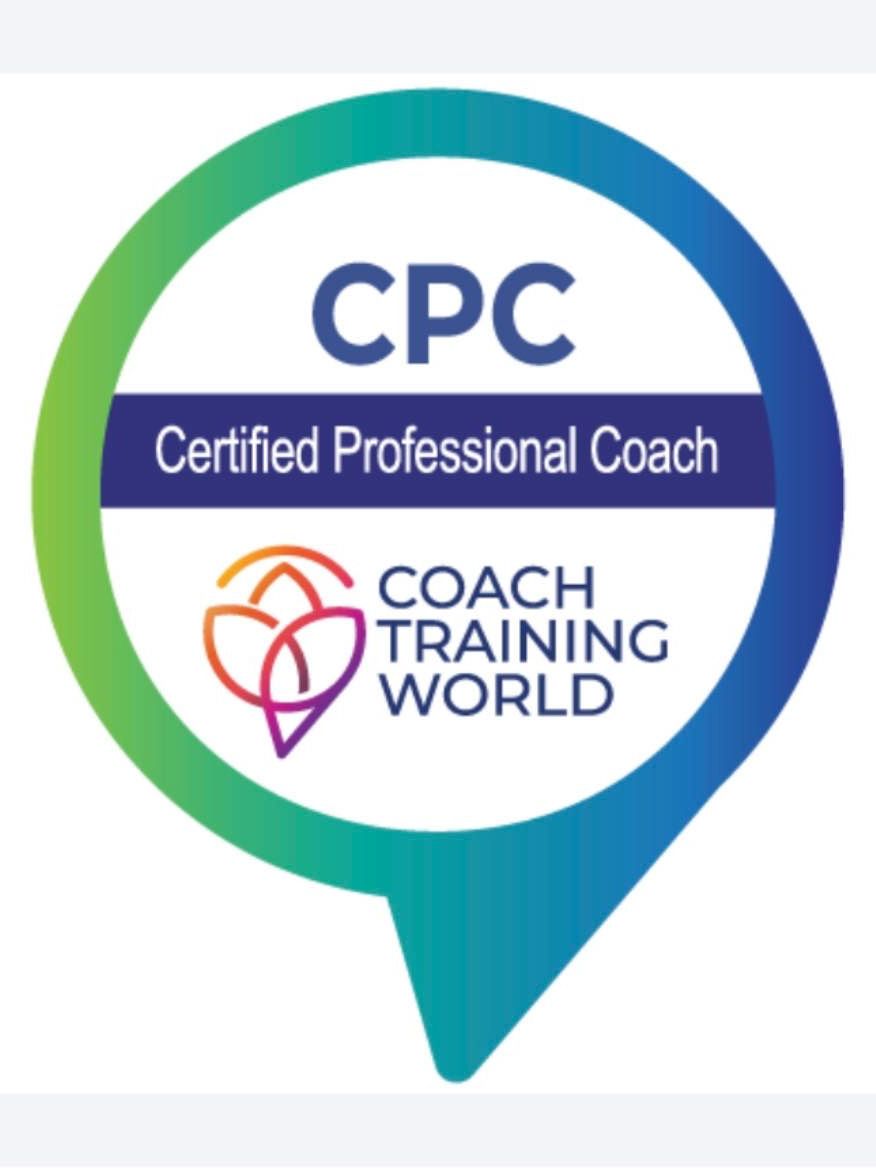Divorce
Genna Marie • December 8, 2024
Divorce & Coaching: Finding Your Way Through A Personal Journey
The reality is, divorce is deeply personal. No two experiences are the same, and no two paths forward look alike. Whether you’re just starting to wonder what divorce might look like for you or you’ve already made the decision, coaching can help you find clarity and move toward acceptance on your own terms.
Recognizing the Complexity of Divorce
Divorce isn’t just a legal process; it’s an emotional and psychological upheaval. Beyond the logistical questions, you might feel overwhelmed by emotions you didn’t expect—grief, anger, relief, confusion, or even guilt. Coaching provides a space to unpack these feelings without judgment, helping you process them in ways that feel authentic to you.
Each Journey Is Unique
One of the first things coaching recognizes is that your divorce is unique. The way you process the end of your marriage, the decisions you make about moving forward, and the kind of relationship you choose to have with your ex-partner will all be influenced by your values, goals, and circumstances. A coach works with you to explore these elements, supporting you as you shape your personal path.
If You’re at the Beginning Stages
For those still trying to decide what divorce might look like, coaching offers an opportunity to step back and assess. What do you need and want for your future? How do you envision your family life, your independence, and your emotional well-being? By taking this time to reflect, you can make decisions with confidence, rather than reacting to the stress of the moment.
Moving Toward Acceptance and Growth
Acceptance isn’t about pretending everything is fine. It’s about finding peace with what’s happened and discovering a way forward that honors who you are now. Coaching helps you set realistic, meaningful goals and develop strategies to move closer to them. Whether that’s rebuilding your confidence, learning to co-parent, or rediscovering joy in your life, a coach provides tools and support to help you thrive.
Your Relationship as Ex-Partners
A key part of this journey is redefining your relationship with your ex. Whether you aim for amicable co-parenting, set boundaries for your well-being, or navigate complicated feelings, coaching can guide you in creating a dynamic that works for your unique situation.
Divorce is one of life's most challenging transitions. It's not just the loss of a relationship; it's often the loss of what you expected your life to be. When you enter a marriage, you do so with hopes and dreams for a shared future. You imagine growing old together, building a life that feels secure and fulfilling. When that vision fades, it can be one of the most disorienting and painful parts
The reality is, divorce is deeply personal. No two experiences are the same, and no two paths forward look alike. Divorce may feel like the end, but it can also be the beginning of a new chapter—one where you rebuild, redefine, and rediscover yourself. If you’re at the start of this process or somewhere in the middle, know that you don’t have to navigate it alone. Through coaching, I can help you find clarity, strength, and a path forward that’s uniquely yours.

Taking Back Control: How to Stop Letting Others’ Moods and Comments Dictate Your Emotions Have you ever felt like someone’s bad mood or offhand comment ruined your entire day? Maybe a co-worker’s negativity left you drained, or a loved one’s criticism triggered self-doubt. It’s easy to absorb the emotions of those around us, but when we allow others to dictate how we feel, we give away our personal power. The truth is, while we can’t control what others say or do, we can control how we respond. I have used that message in every aspect of my personal and professional life for many years. Learning to reframe and react positively can protect our peace and help us stay grounded in our own emotional well-being. Why Do We Let Others Affect Us? We’re wired for connection, which means we naturally respond to the energy and emotions of those around us. This can be helpful in building empathy, but it becomes harmful when we internalize negativity or let external factors dictate our inner world. Common reasons we absorb others’ moods and comments: • Validation-seeking: We tie our worth to how others see us. • Conflict avoidance: We feel responsible for fixing their emotions. • Emotional sensitivity: We struggle to separate their feelings from our own. • People-pleasing tendencies: We take on others’ burdens to keep the peace. If this sounds familiar, don’t worry—it’s possible to shift this pattern and reclaim your emotional independence. How to Reframe and Respond Positively One of the things I focus on in my coaching is helping people reframe their thoughts and actions. People often think of this as simply “looking on the bright side,” but for me, reframing is about something deeper—it’s about recognizing what you need in a situation. It’s not just about positivity; it’s about clarity, boundaries, and self-protection. For example, sometimes setting a boundary for yourself might feel like you’re “giving in” or not standing your ground, but in reality, you’re choosing to protect your peace. Reframing allows you to see that stepping back isn’t weakness—it’s wisdom. It’s about responding in a way that serves you, rather than reacting out of frustration, hurt, or obligation. Here’s how you can start practicing this in daily life: 1. Recognize What’s Yours and What’s Theirs When someone is upset, take a moment to ask yourself: • Is this my emotion, or am I absorbing theirs? • Is this comment about me, or is it a reflection of their own struggles? By identifying the source, you can avoid carrying emotional weight that doesn’t belong to you. 2. Pause Before Reacting Instead of immediately responding with frustration, self-doubt, or defensiveness, practice the pause : • Take a deep breath. • Remind yourself that their words or mood are not a reflection of your worth. • Respond with intention, not impulse. This simple practice can prevent knee-jerk reactions and help you maintain your composure. 3. Reframe Negative Comments When faced with criticism or negativity, try to reframe it: • Instead of: “Why are they being so rude to me?” Try: “They might be having a bad day, but that doesn’t mean I have to take it personally.” • Instead of: “I must have done something wrong.” Try: “Their reaction is about them, not me.” This shift helps you detach from their negativity and stay in control of your emotions. 4. Set Emotional Boundaries Protect your energy by setting limits: • If someone is constantly negative, limit your exposure or change the topic. • If a comment stings, remind yourself that you define your worth, not others. • If a conversation is escalating, politely disengage: “I hear you, but I need to step away from this for now.” Boundaries aren’t about shutting people out; they’re about keeping yourself emotionally safe. 5. Shift Your Focus to What You Can Control You can’t control how others feel or what they say, but you can control: • Your response • Your self-talk • The energy you bring to a situation When negativity arises, ask yourself: “How do I want to feel today?” Then choose actions that align with that feeling. 6. Surround Yourself with Positive Reinforcement If you find yourself dwelling on someone’s words or mood, counteract it with positivity: • Listen to uplifting music or a motivational podcast. • Repeat affirmations like “I am in control of my emotions” or “I choose peace over reaction.” • Engage with people who bring positive energy into your life. By reinforcing positivity, you train your mind to stay resilient in the face of negativity. Final Thoughts: Reclaim Your Emotional Power Other people’s emotions and words don’t have to dictate your day. By recognizing what’s yours, pausing before reacting, reframing negativity, setting boundaries, and focusing on what you can control, you take back your power. In my coaching, I help people see that reframing isn’t about false positivity—it’s about finding clarity and making decisions that align with what you truly need. Sometimes that means standing firm, and other times it means stepping back for your own well-being. Neither is a sign of weakness. Both are a sign of emotional strength. You are not responsible for fixing others’ emotions, but you are responsible for protecting your own peace. The more you practice these shifts, the more you’ll find yourself responding with confidence, clarity, and calm—no matter what’s happening around you.












